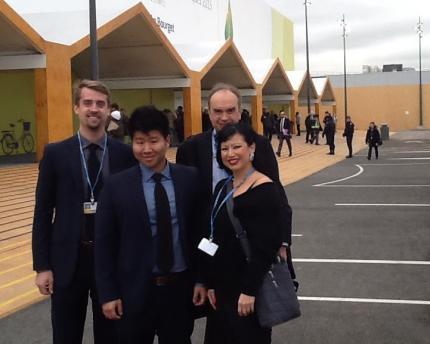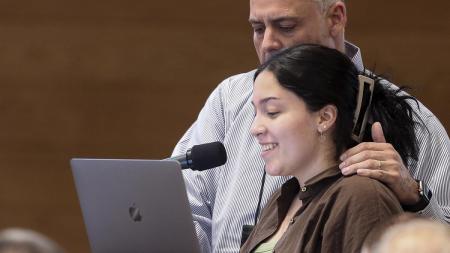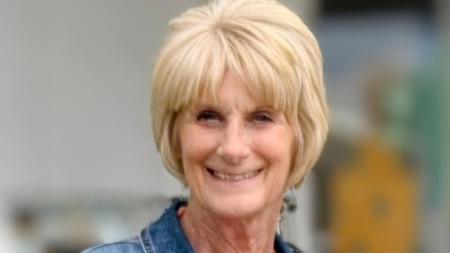CRC Delegates Report on Paris Climate Conference

The CRC delegation (from left to right: Kyle Meyaard-Schaap, Joe Myohan Oh, Rich Killmer, Michelle Nieviadomy)
A delegation of four representatives from the Christian Reformed Church are attending the COP21 climate conference in Paris, France as observers and to join with other Christian groups to provide a gospel witness to delegates at the conference. They are sending back reports. Here is one of them.
János Áder, the President of Hungary, spoke at the opening session of COP 21, the meeting of the nations of the world in Paris on dealing with the dangers of climate change.
Áder told the conference about a dream he has had about a conversation with his yet-to-be-born grandchild 20 years from now.
In the dream, his grandchild asks him why he did not do anything about climate change that scientists reported to him.
Did he not believe the scientists? Did he not believe the nations of the world as they reported on the damage that has already caused harm to the people of their country?
Áder concluded that the nations must do everything they can to ensure that his dream never becomes a reality.
Presidents from 150 nations spoke to the conference on Monday. They agreed that climate change has already caused damage and will cause more unless there is a major reduction of the burning of fossil fuels.
Perhaps the most anticipated address was from President Barack Obama.
His speech covered a wide range of some of the most important components of a global climate agreement. Naming the progress that has already been made by the global community, Obama called for all delegations present to “turn these achievements into an enduring framework for human progress.”
He called for a strong and transparent process that will send the message to the global economy that the world is serious about transitioning to a clean and renewable energy future.
He also called for a process that will make sure global resources flow to the countries that need help to adjust to the effects of climate change that cannot be stopped.
It remains to be seen exactly what the position of the U.S. will be on the specifics moving forward these next several days, but for now. President Obama, has shown significant commitment to the process. His final call at the end of his speech is instructive for how he thinks about these talks: “Let’s get to work.”
Similarly anticipated was the talk by newly elected Canadian Prime Minister Justin Trudeau, who unveiled an ambitious Canadian position.
He laid out five primary principles for Canadian action: (1) to act on the best scientific evidence and advice; (2) to seek policies that will contribute to a low-carbon economy—including putting a price on carbon; (3) to work with local groups and indigenous communities; (4) to help developing countries adapt and seek low-carbon development—including access to clean energy technologies; (5) to see climate change not only as a challenge to be overcome but as an opportunity to be harnessed—an opportunity for innovation and growth.
He spoke passionately about Canada’s history as a leader on global climate action and about his desire to lead again.
In one particularly moving segment, he upheld the many indigenous communities of Canada as necessary leaders and teachers in Canada’s journey toward climate action: “Indigenous communities have known for a long time how to take care of the earth. The rest of us have a lot to learn.”
Kyle Meyaard-Schaap, Co-coordinator, Climate Witness Project, [email protected]
Rev. Richard Killmer, Co-coordinator, Climate Witness Project, [email protected]


